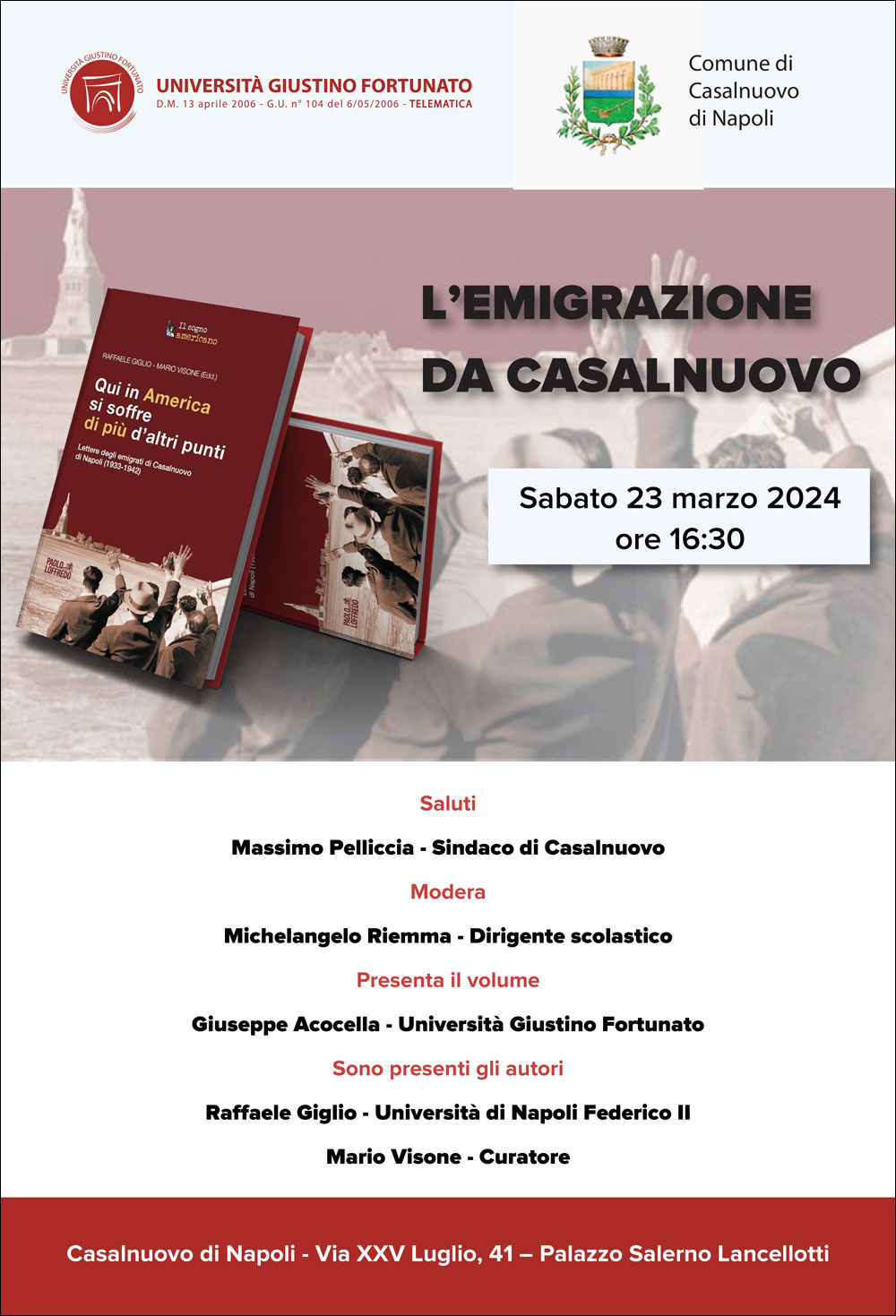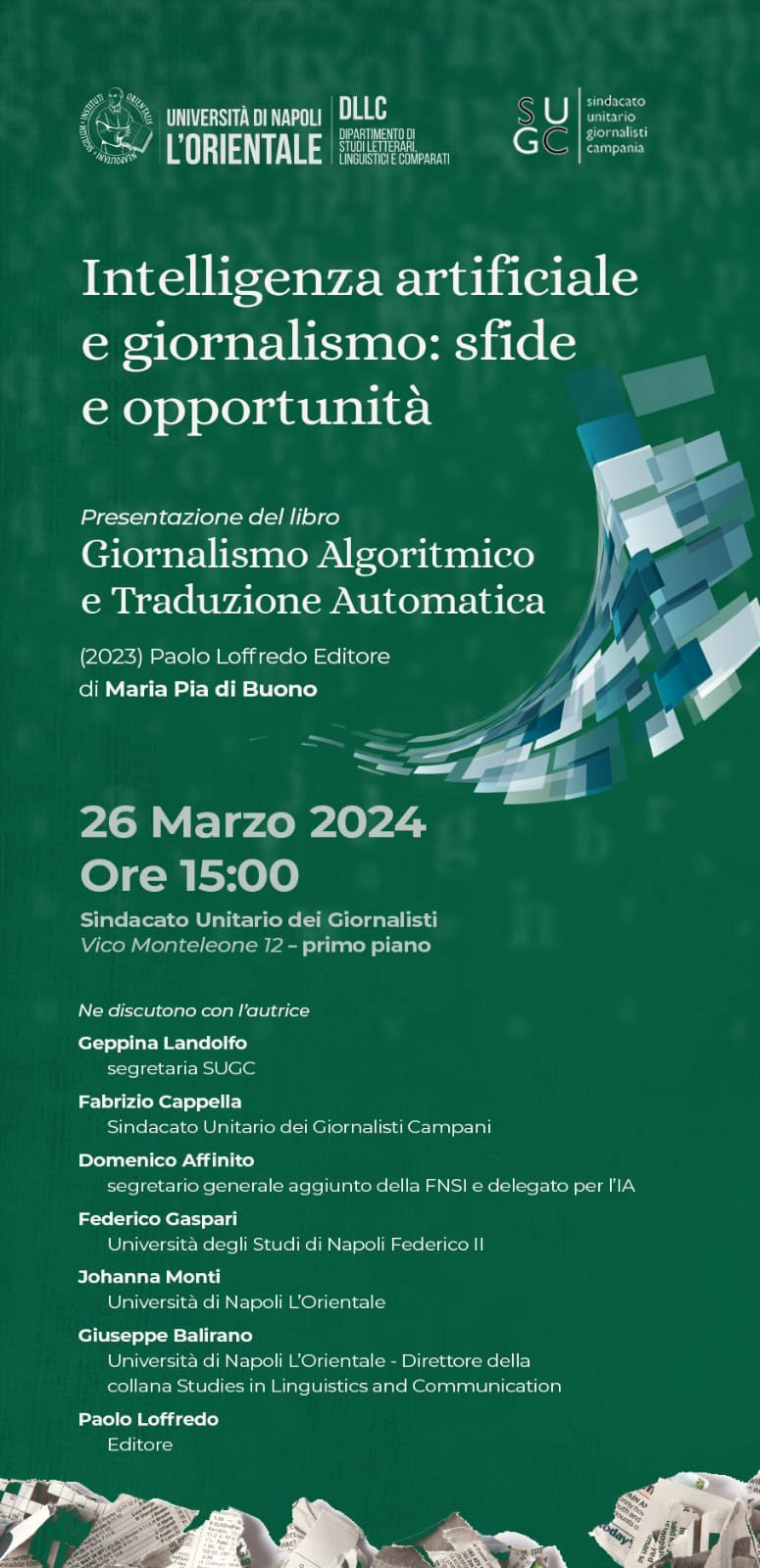 Paolo Loffredo, sixth generation of a large family of publishers and booksellers engaged in the production and distribution of books since the late nineteenth century, creates in 2012 the new editorial company Paolo Loffredo Editore. The historical site was until the '80s in the heart of the historic centre of Naples in Via San Biagio dei Librai, lower Decumano and also known as the SpaccaNapoli.
Paolo Loffredo, sixth generation of a large family of publishers and booksellers engaged in the production and distribution of books since the late nineteenth century, creates in 2012 the new editorial company Paolo Loffredo Editore. The historical site was until the '80s in the heart of the historic centre of Naples in Via San Biagio dei Librai, lower Decumano and also known as the SpaccaNapoli.
At the beginning of the twentieth century, Giuseppe Loffredo decided to add book selling to the book production, which definitively imposed itself after World War II with the publication of manuals for the University and for the School that succeeded in establishing themselves soon throughout Italy.
LAST EVENT
"L'emigrazione da Casalnuovo"
23 Marzo 2024 - Palazzo Salerno Lancellotti Ateneo, via XXV Luglio, 41 - Casalnuovo (NA) - ore 16,30

--------------------------------------------------------------------
"Intelligenza artificiale e giornalismo: sfide e opportunità"
26 Marzo 2024 - Sindacato Unitario dei Giornalisti - vico Monteleone, 12 - primo Piano - Napoli - ore 15,00

Temi e voci della poesia del Novecento
ISSN 2283-4281
Language: Italian
Publisher: Paolo Loffredo Iniziative Editoriali Srl

Description
Temi e voci della poesia del Novecento
The complex and multiform twentieth century poetic experience, although widely pursued by authoritative critical voices of the time, always leaves space to new and stimulating interventions to highlight a different, albeit weak, signal of his inspiration and his close link with the days that have marked our existence. In the harmony of the voices, which gave life to a renewed poetic concert both in the experimented forms and in the thoughts that supported the musical scan of the verse, the twentieth century was a century of vast expression, which has always found its roots in the real experience. of a thematic representation not only Italian, but also European. Although partly a continuation of nineteenth-century poetic tensions, the twentieth century has its own distinctive character in the fruitful way of poetic experimentalism, but also the most innovative element in the European context. "The twentieth century was a century that was all too discontinuous, inorganic and subversive, because it could offer unitary frameworks of reference, certain normative systems, shared and long-lived". Precisely in this fragmentation, in this discontinuity, which are signs of fruitful work, is the value of a poem, which has been able to open up to a wide range welcoming the breaths of diversity and the intelligences projected to capture not only today, but also the tomorrow of a man increasingly staggering in the complex register of his existence. Some witnesses of this poetic season, although clinging around the usual -isms or perched on gigantic poetic experiences of individual voices or represented by new evidence of a dialectal versification, were investigated by young critics, trained in the Department of Humanistic Studies of Frederick II, in a conference held on 30 and 31 May 2016.













